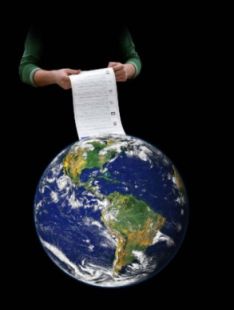2012 – THE YEAR OF CHOICES

| OLEG KONDOR, Business mir #21 - 2012-02 | | MAIL PRINT |
The 12th year of the 3rd millennium promises to be pivotal in many regards. It’s the year for choosing which way individual states and the world in whole will lean.
This year is sure to bring a challenging period of rapid change, economic and social upheaval. The future of our planet in the coming decades will depend on how quickly and flexibly national leaders and governmental organisations respond to new challenges. The close connection between politics, geopolitics and economics has long been obvious to everyone. Stock markets, indices and share prices instantly reflect the slightest social upheaval. Thus any escalation of the conflict in Iran – or indeed elsewhere in the Middle East – will inevitably lead to a rise in oil prices. The fate of Europe’s single currency depends on the political situation in Europe and the political leanings of EU member states’ governments. The world’s two great powers – the United States and Russia – will be holding presidential elections this year and crucial elections will be taking place in many other countries as well. These include parliamentary elections in Kazakhstan, Greece, Syria, Belarus, Georgia, Abkhazia and Armenia as well as presidential elections in France, South Korea, Egypt, Moldova, Finland, Turkmenistan, Yemen, Mexico, Venezuela and Taiwan.
The territories of Russia, Belarus and Kazakhstan will become a single economic area and further development of the Eurasian Union project, designed to unite the three post-Soviet countries, was announced by Vladimir Putin in late 2011. The 18th Communist Party Congress is to be held in China, during which the Asian giant’s new leadership will be appointed. Although China’s new leadership to come in 2012 will obviously not bring any dramatic changes in foreign policy, it will yet again inevitably raise thorny questions regarding China’s territorial claims, its relations with Taiwan and North Korea’s new leadership, etc. Analysts predict a slowdown in economic growth within China itself and even stretch to a potential burst of the Chinese economy’s “bubble”, given the vast urban middle class and peasantry’s increasing appetite for societal improvements. Furthermore, some 50 million young people educated outside China are making new demands on the country’s political system. Despite differences in the political systems of the aforementioned countries, which range from democratic to authoritarian, globalisation in the modern world will inevitably dictate a direction of common development. This phenomenon has been confirmed by the uprisings that swept across North Africa and the Middle East, the unrest in Russia due to fraud and manipulation in parliamentary elections as well as the Western nations’ protest movements against speculative financial capitalism. The people are no longer willing to tolerate the blatant injustice of their social elites’ practices and the opacity of their decision making processes.
The world is changing rapidly and society wants to make its own decisions on basic issues. The main issue lies in the public’s lack of trust in government and Russia is a prime example of that exact tendency. Here we have the case of a rather inert society – one that has not been spoiled by democratic freedoms – surprising the authorities by expressing its strong indignation about electoral fraud. The Russian State Duma in office’s electoral process has cast serious doubts on its legitimacy in the eyes of the population. 2012 will be critical for the current Russian leadership and its elite in terms of gaining its own population’s trust, that of political and business circles in the West as well as that of the international investment community. This given that any suspicion of fraud in the presidential elections could trigger serious social repercussions. Whatever the outcome of Russia’s presidential elections in March 2012, the Russian people have sent their present government a clear message – they’re demanding changes and a more European style leader.
| OLEG KONDOR, Business mir #21 - 2012-02 | 



| MAIL PRINT |













